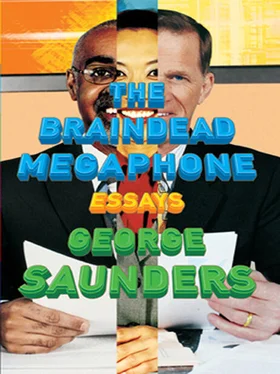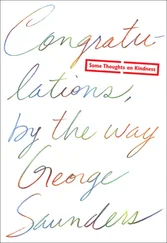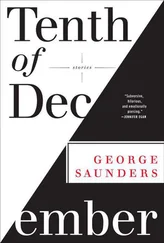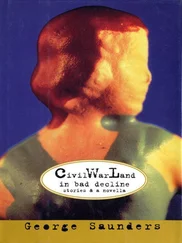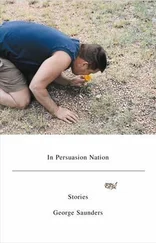A petty bureaucrat writes to his superior: “The lighting must be better protected than now. Lights could be eliminated, since they apparently are never used. However, it has been observed that when the doors are shut, the load always presses hard against them as soon as darkness sets in. This is because the load naturally rushes toward the light when darkness sets in, which makes closing the door difficult. Also, because of the alarming nature of darkness, screaming always occurs when the doors are closed. It would therefore be useful to light the lamp before and during the first moments of the operation.” The bureaucrat was the ironically named “Mr. Just,” his organization the SS, the year 1942.
What Mr. Just did not write — what he would have written, had he been taking full responsibility for his own prose — is: “To more easily kill the Jews, leave the lights on.” But writing this would have forced him to admit what he was up to. To avoid writing this, what did he have to do? Disown his prose. Pretend his prose was not him. He may have written a more honest version, and tore it up. He may have intuitively, self-protectively, skipped directly to this dishonest, passive-voice version. Either way, he accepted an inauthentic relation to his own prose, and thereby doomed himself to hell.
Working with language is a means by which we can identify the bullshit within ourselves (and others). If we learn what a truthful sentence looks like, a little flag goes up at a false one. False prose can mark an attempt to evade responsibility (“On structures not unlike rock masses, it was observed that certain animals perhaps prone to flight slept somewhat less aggressively than previously”), or something more diabolical (“The germ-ridden avatars of evil perched on their filthy black rocks in the otherwise pure bay, daring the clear-souled inhabitants of the city to do what was so obviously necessary: kill them before they could infest the city’s hopeful, innocent children”); the process of improving our prose disciplines the mind, hones the logic, and, most important of all, tells us what we really think. But this process takes time, and immersion in prior models of beautiful compression.
Forbes was my first model of beautiful compression. She did for me what one writer can do for another: awoke a love for sentences. Behind her prose I sensed the loving hand of an involved human maker. Her thirst for direct, original language seemed like a religion of sorts, a method of orientation, and a comfort, in all countries and weathers, in happiness and sadness, in sickness and in health. Reading Johnny Tremain , I felt a premonition that immersion in language would enrich and bring purpose to my life, which has turned out to be true.
So thank you, Esther Forbes. I never knew you, it turned out your Boston never existed, but that nonexistent town, and that boy made out of words, changed things for me forever.
A SURVEY OF THE LITERATURE
The Patriotic Studies discipline may properly be said to have begun with the work of Jennison, et al., which first established the existence of the so-called “fluid-nations,” entities functionally identical to the more traditional geographically based nations (“geo-nations”), save for their lack of what the authors termed “spatial/geographic continuity.” Citizenship in a fluid-nation was seen to be contingent not upon residence in some shared physical space (i.e., within “borders”) but, rather, upon commonly held “values, loyalties, and/or habitual patterns of behavior” seen to exist across geo-national borders.
For approximately the first five years of its existence, the Patriotic Studies discipline proceeded under the assumption that these fluid-nations were benign entities, whose existence threatened neither the stability nor integrity of the traditional geo-nation.
A classic study of this period was conducted by Emmons, Denny, and Smith, concerning the fluid-nation Men Who Fish. Using statistical methods of retro-attribution, the authors were able to show that, in a time of national crisis (the Battle of the Bulge, Europe, 1944), American citizens who were also citizens of Men Who Fish performed their duties every bit as efficiently (± 5 Assessment Units) as did members of the control group, even when that duty involved inflicting “harm” to “serious harm” on fellow citizens of Men Who Fish who were allied at that time with the opposing geo-nation (i.e., Germany). During this battle, as many as seventy-five hundred (and no less than five thousand) German soldiers who were citizens of Men Who Fish were killed or wounded by American soldiers who were citizens of Men Who Fish, leading the authors to conclude that citizens of Men Who Fish were not “expected, in a time of national crisis, to respond significantly less patriotically than a control group of men of similar age, class, etc., who are not citizens of Men Who Fish.”
Significant and populous fluid-nations examined during this so-called “Exoneration Studies” period included Men With Especially Large Penises; People Who Say They Hate Television But Admit To Watching It Now And Then, Just To Relax; Women Who When Drunk Berate The Sport Of Boxing; and Elderly Persons Whose First Thought Upon Hearing Of A Death Is Relief That They Are Still Alive, Followed By Guilt For Having Had That First Feeling.
A watershed moment in the history of the discipline occurred with the groundbreaking work of Randall, Cleary, et al., which demonstrated for the first time that individuals were capable of holding multiple fluid-nation citizenships. Using the newly developed Anders-Reese Distance-Observation Method, the authors were able to provide specific examples of this phenomenon. A Nebraska man was seen to hold citizenship in both Men Who Sit Up Late At Night Staring With Love At Their Sleeping Children, and Farmers Who Mumble Soundless Prayers While Working In Their Fields. In Cincinnati, Ohio, twin sisters were found to belong to Five-Times-A-Week Churchgoers, as well as Clandestine Examiners Of One’s Own Hardened Nasal Secretions. An entire family in Abilene, Texas, was seen to belong to Secretly Always Believe They Are The Ugliest In The Room, with individual members of this family also holding secondary citizenships in fluid-nations as diverse as Listens To Headphones In Bed; Stands Examining Her Breasts In Her Closet; Brags Endlessly While Actually Full of Doubt; Makes Excellent Strudel; and Believes Fervently In The Risen Christ.
At the time, awareness of our work among the general public was still low. This would change dramatically, however, with the publication, by Beatts, Daniels, and Ahkerbaj, of their comprehensive study of the fluid-nation People Reluctant To Kill For An Abstraction.
In this study, 155 members of the target fluid-nation were assessed per the Hanley-Briscombe National Allegiance Criterion, a statistical model developed to embody the Dooley-Sminks-Ang Patriot Descriptor Statement, which defined a patriot as “an individual who, once the leadership of his country has declared that action is necessary, responds quickly, efficiently, and without wasteful unnecessary questioning of the declared national goal.”
Results indicated that citizens of People Reluctant To Kill For An Abstraction scored, on average, thirty-nine points lower on the National Allegiance Criterion than did members of the control group and exhibited nonpatriotic attitudes or tendencies 29 percent more often. Shown photographs of members of an opposing geo-nation and asked, “What sort of person do you believe this person to be?” citizens of People Reluctant To Kill For An Abstraction were 64 percent more likely to choose the response “Don’t know, would have to meet them first.” Given the opportunity to poke with a rubber baton a citizen of a geo-nation traditionally opposed to their geo-nation (an individual who was at that time taunting them with a slogan from a list of Provocative Slogans), citizens of People Reluctant To Kill For An Abstraction were found to be 71 percent less likely to poke than members of the control group.
Читать дальше
